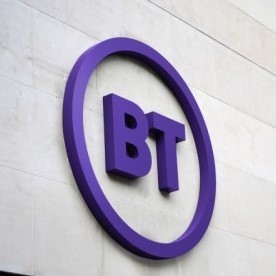
Also in today's EMEA regional roundup: who's up and who's down in the Fiber Development Index; European Commission probes consumer IoT market; Telefónica Tech becomes Teams player.
UK incumbent operator BT is attracting some flak online and elsewhere for its decision to raise prices by 9.3% for most customers from the end of March – a figure well ahead of the UK's current official 5.4% rate of inflation. According to a blog written by Nick Lane, BT's managing director for consumer customer services, the rise has been prompted by a 90% increase in data usage on its fixed network since 2018 and a 79% rise on its mobile network since 2018 and those faraway pre-pandemic days. "Unlike most things we buy, like food, electricity or fuel," Lane argues, "you don't pay more for using more as our data plans are unlimited, but we need to keep investing in our networks so they can handle this huge increase in demand." In the Telegraph (paywall applies), the rise is dubbed a "work-from-home tax." You get the picture.
Spain and Sweden lead the European pack in the latest Fiber Development Index from analyst firm Omdia, achieving seventh and eighth place respectively on the global ranking list. The index tracks and benchmarks fiber development and investment across 81 countries, from high-flying Singapore in the top spot to lowly Ethiopia at the bottom. The Netherlands had a bad year, falling seven places on the list, though it still ranks well above the UK, which is down in 55th position. Looking ahead, Omdia predicts that in the next five years the percentage of the global population that remains unconnected will fall from 42% to 30%, though by 2026 30% of the world's population will only be accessing the Internet via a mobile device, meaning that in reality only 40% will have the "luxury" of fixed broadband at home.
The European Commission has published the findings of a competition inquiry in the consumer Internet of Things market, identifying a number of concerns, particularly with regard to "exclusivity and tying practices" and interoperability in relation to voice-activated assistants such as Amazon's Alexa and Apple's Siri. Commenting on the findings, the Commission's executive vice president, Margrethe Vestager, said: "This is a market with high barriers to entry, few vertically integrated players and concerns about access to data, interoperability or exclusivity practices amongst others."
Telefónica's IT services unit, Telefónica Tech, has agreed to become an official distributor of Microsoft Teams Essentials, a stripped-down version of the work collaboration platform aimed at small and midsized companies. The service offers unlimited chat, calling and group meetings with up to 300 participants, as well as some other bits and bobs such as Office web applications.
— Paul Rainford, Assistant Editor, Europe, Light Reading
Read more about:
EuropeAbout the Author(s)
You May Also Like












